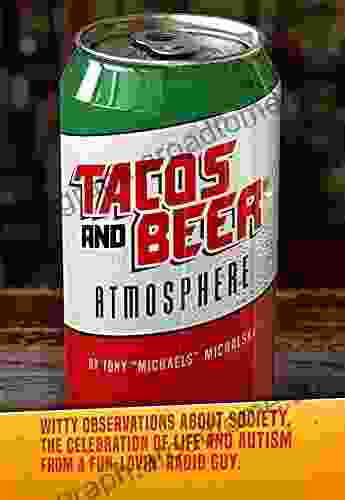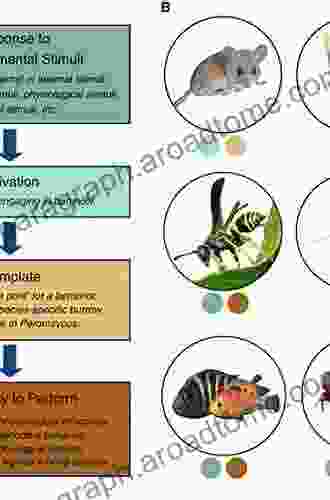The Parental Brain: Mechanisms, Development, and Evolution


5 out of 5
| Language | : | English |
| File size | : | 8170 KB |
| Text-to-Speech | : | Enabled |
| Screen Reader | : | Supported |
| Enhanced typesetting | : | Enabled |
| Print length | : | 513 pages |
| Lending | : | Enabled |
Parenthood is a transformative experience that profoundly shapes our lives and our brains. In The Parental Brain, Dr. Sarah Blaffer Hrdy delves into the fascinating science behind this remarkable phenomenon, unraveling the intricate mechanisms and evolutionary forces that have shaped our capacity for parenting.
The Neurobiology of Parenting
The parental brain is a complex and highly evolved network of neural pathways and structures that enable parents to nurture and protect their offspring. Dr. Hrdy explores these pathways, including:
- The reward system: Neurotransmitters like oxytocin and dopamine flood the brain when we interact with our children, creating positive emotions and reinforcing caregiving behaviors.
- The stress response system: The hypothalamus and amygdala play a crucial role in regulating stress levels in parents, helping them respond effectively to threats and challenges.
- The cognitive control system: Prefrontal cortex areas are involved in decision-making, planning, and impulse control, essential for navigating the demands of parenthood.
The Development of Parental Behavior
The parental brain is not fixed at birth but rather develops throughout our lives in response to our experiences with children. Dr. Hrdy highlights the importance of:
- Early attachment: Positive interactions with caregivers in early childhood lay the groundwork for healthy parental attachments and caregiving abilities later in life.
- Cultural learning: We learn about parenting from observing others and from our own experiences as children. Culture plays a significant role in shaping parenting practices and expectations.
- Genetics: Some parental behaviors, such as sensitivity and protectiveness, have a genetic basis, influencing our innate responses to our children.
The Evolution of Parental Care
Parental care is a fundamental behavior that has evolved over millions of years. Dr. Hrdy draws on comparative studies of other species to shed light on the evolutionary origins of human parenting, including:
- Maternal instincts: Most mammals display strong maternal instincts, providing care and protection for their young.
- Paternal care: While less common, paternal care is also observed in some species, including humans. Its prevalence varies across cultures and historical periods.
- Social support: In humans and many other species, parenting is often supported by extended family and community members, forming complex social networks of care.
The Impact of Parental Care
The parental brain has profound implications for both individuals and societies. Dr. Hrdy examines:
- Child development: The quality of parental care has a significant impact on children's physical, emotional, and cognitive development.
- Social behavior: Parenting shapes our social interactions, fostering empathy, cooperation, and a sense of responsibility.
- Public policy: Understanding the parental brain can inform public policies that support parents and families, such as paid parental leave and early childhood education.
The Parental Brain is a groundbreaking work that provides a comprehensive and compelling account of the science behind parenting. By unraveling the intricacies of the parental brain, Dr. Sarah Blaffer Hrdy offers invaluable insights into the profound bond between parents and children, the evolutionary forces that have shaped our capacity for caregiving, and the impact of parenting on our lives and society.
5 out of 5
| Language | : | English |
| File size | : | 8170 KB |
| Text-to-Speech | : | Enabled |
| Screen Reader | : | Supported |
| Enhanced typesetting | : | Enabled |
| Print length | : | 513 pages |
| Lending | : | Enabled |
Do you want to contribute by writing guest posts on this blog?
Please contact us and send us a resume of previous articles that you have written.
 Book
Book Novel
Novel Page
Page Chapter
Chapter Text
Text Story
Story Genre
Genre Reader
Reader Library
Library Paperback
Paperback E-book
E-book Magazine
Magazine Newspaper
Newspaper Paragraph
Paragraph Sentence
Sentence Bookmark
Bookmark Shelf
Shelf Glossary
Glossary Bibliography
Bibliography Foreword
Foreword Preface
Preface Synopsis
Synopsis Annotation
Annotation Footnote
Footnote Manuscript
Manuscript Scroll
Scroll Codex
Codex Tome
Tome Bestseller
Bestseller Classics
Classics Library card
Library card Narrative
Narrative Biography
Biography Autobiography
Autobiography Memoir
Memoir Reference
Reference Encyclopedia
Encyclopedia John Englander
John Englander Kevin Petersen
Kevin Petersen John Creedon
John Creedon John Horne
John Horne Nathan Bransford
Nathan Bransford John Crisp
John Crisp John Chitakure
John Chitakure Jennifer J Freyd
Jennifer J Freyd Sao
Sao John D Wright
John D Wright Peter Watson
Peter Watson M Jeroen Fonderie
M Jeroen Fonderie Jessica Walliser
Jessica Walliser Jimmy Z
Jimmy Z Leon King
Leon King Kimberly Nye
Kimberly Nye John B Hudson
John B Hudson John Fay
John Fay John Edgell
John Edgell Kipling D Williams
Kipling D Williams
Light bulbAdvertise smarter! Our strategic ad space ensures maximum exposure. Reserve your spot today!

 Jeremy MitchellThird World Health Hostage to First World Wealth: Uncovering the Critical...
Jeremy MitchellThird World Health Hostage to First World Wealth: Uncovering the Critical...
 Preston SimmonsMr. Bean's Definitive and Extremely Marvelous Guide to France: Unveiling the...
Preston SimmonsMr. Bean's Definitive and Extremely Marvelous Guide to France: Unveiling the...
 Kyle PowellUnveiling the Architectural Masterpiece: Building World-Class Performing Arts...
Kyle PowellUnveiling the Architectural Masterpiece: Building World-Class Performing Arts...
 Samuel Taylor ColeridgeUnderstanding Pharmacology Book Essentials: Your Guide to Medication Safety
Samuel Taylor ColeridgeUnderstanding Pharmacology Book Essentials: Your Guide to Medication Safety Jett PowellFollow ·14.2k
Jett PowellFollow ·14.2k Charles DickensFollow ·11.9k
Charles DickensFollow ·11.9k Samuel BeckettFollow ·13.7k
Samuel BeckettFollow ·13.7k Jon ReedFollow ·12k
Jon ReedFollow ·12k Ernest HemingwayFollow ·19.4k
Ernest HemingwayFollow ·19.4k Hassan CoxFollow ·8.8k
Hassan CoxFollow ·8.8k Shannon SimmonsFollow ·10.7k
Shannon SimmonsFollow ·10.7k Desmond FosterFollow ·8.7k
Desmond FosterFollow ·8.7k

 Julio Cortázar
Julio CortázarAn Illustrated Encyclopedia Of Live Concerts And...
Immerse yourself in the...

 Edgar Cox
Edgar CoxNon Physically Assaultive Attachment Based Chronic Covert...
What is Covert...

 Robert Reed
Robert ReedThe Baseball of Why: Unraveling the Intricacies of...
Step up to the plate and...

 Aldous Huxley
Aldous HuxleyTacos and Beer: An Atmosphere of Flavorful Delights
In the realm of culinary adventures,...

 Stan Ward
Stan WardUnlock the Secrets of the Aramaic Jesus: Revelations of a...
Journey Back to the Roots of...

 Vincent Mitchell
Vincent MitchellMillionaire Success Strategies: Your Blueprint for...
Unlock the...
5 out of 5
| Language | : | English |
| File size | : | 8170 KB |
| Text-to-Speech | : | Enabled |
| Screen Reader | : | Supported |
| Enhanced typesetting | : | Enabled |
| Print length | : | 513 pages |
| Lending | : | Enabled |




